Diaries from EuroTour: Subtle Assumptions, Push-back, and Invalid Passports
Jun 24, 2022
A Short History of Authentic Revolution’s European tour
From new trainings to new friends, cultural snafus to cultural learnings, Europe was a smashing success. We led 10 events in 5 countries over the course of a month and a half! Below is an account of Sara and Geof’s trip, as posted on Facebook.
Europe, Day 1.
The Comedy of Errors Continues
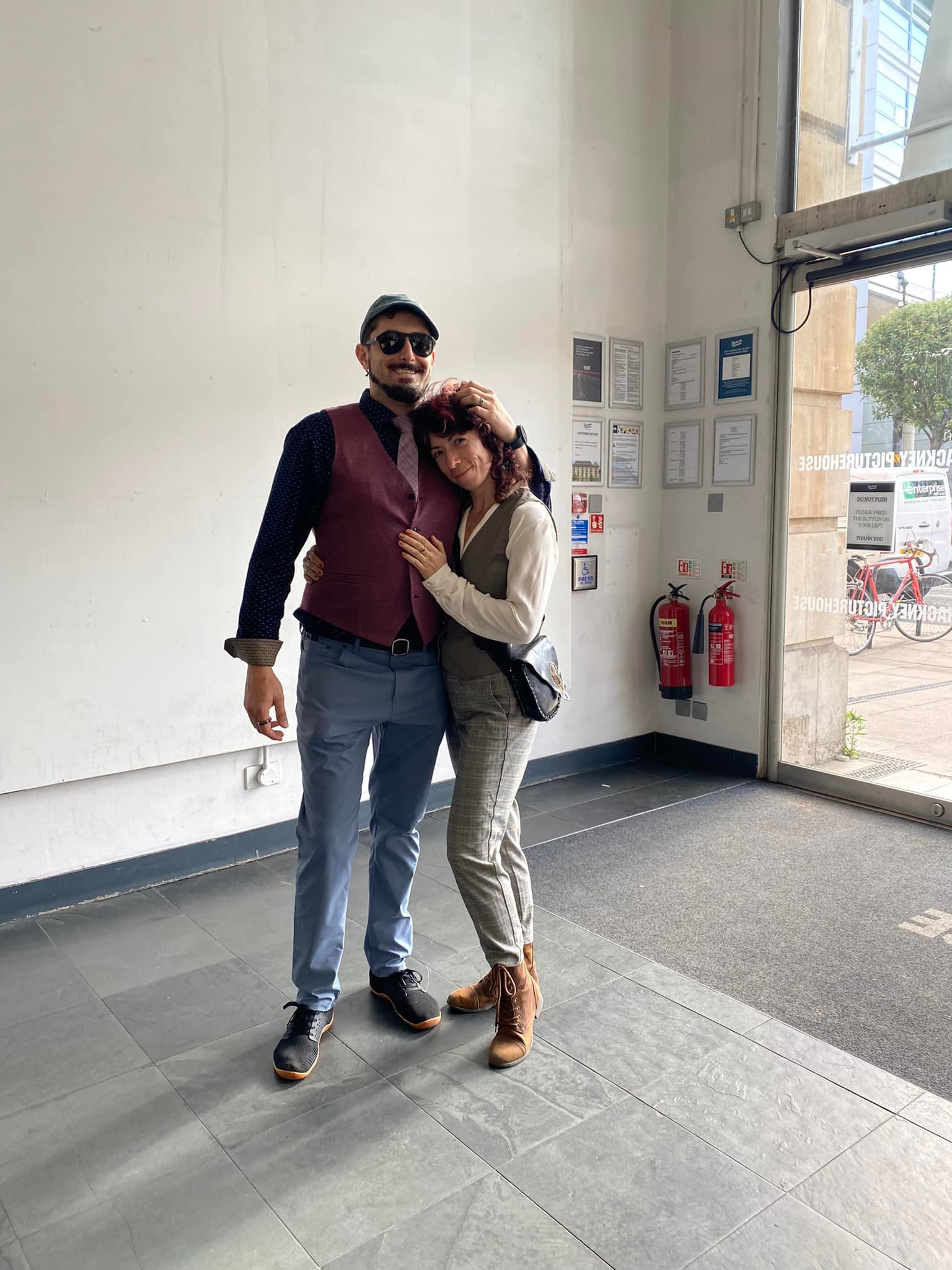
Well, friends, we arrived safely in London. Well…almost. In continuance of a month that has contained the last-minute cancellation of an elaborate proposal I’d planned for 6 weeks, almost getting COVID days before an international flight, and deciding to close my company of 10 years, we had another tiny snafu:
Geof’s passport got somehow (we still don’t understand this) flagged as invalid. Not in America. In Europe.
So that meant we got to customs. I got through. And Geof got taken aside for an hour while a customs officer decided if he was going to be let into London, or put on a plane back home.
They let him in, thank goodness. But that leaves us in the UK with 2 weeks before we need to leave for our next event, and Geof doesn’t have a passport. (Postscript: this got worked out, but involved Geof calling his US Congressman, senator, and the border police in several countries. It was a THING.)
The saga continueth. You think we’d be used to bad luck by now! Despite that, Day 1 in London was lovely. Adam Wilder, angel that he is, picked us up at the airport and drove us around town. We got dressed up and went out in Hackney looking totally baller. Geof and I (finally!) saw Everything Everywhere All At Once, which made both of us cry like babies. And now we are safely ensconced at David Fuller’s beautiful pad, looking up passport regulations.
P.S. Pro Tip: thanks to Wouter Slegers, I tried out the Timeshifter app to manage jetlag. After no more than 2 pre-trip days of slightly changed sleep schedules, supplanted by melatonin (plus, admittedly, the tiny person’s ability to sleep on a plane) I have NO jetlag whatsoever. Definitely recommend!
Day 6 in Europe.
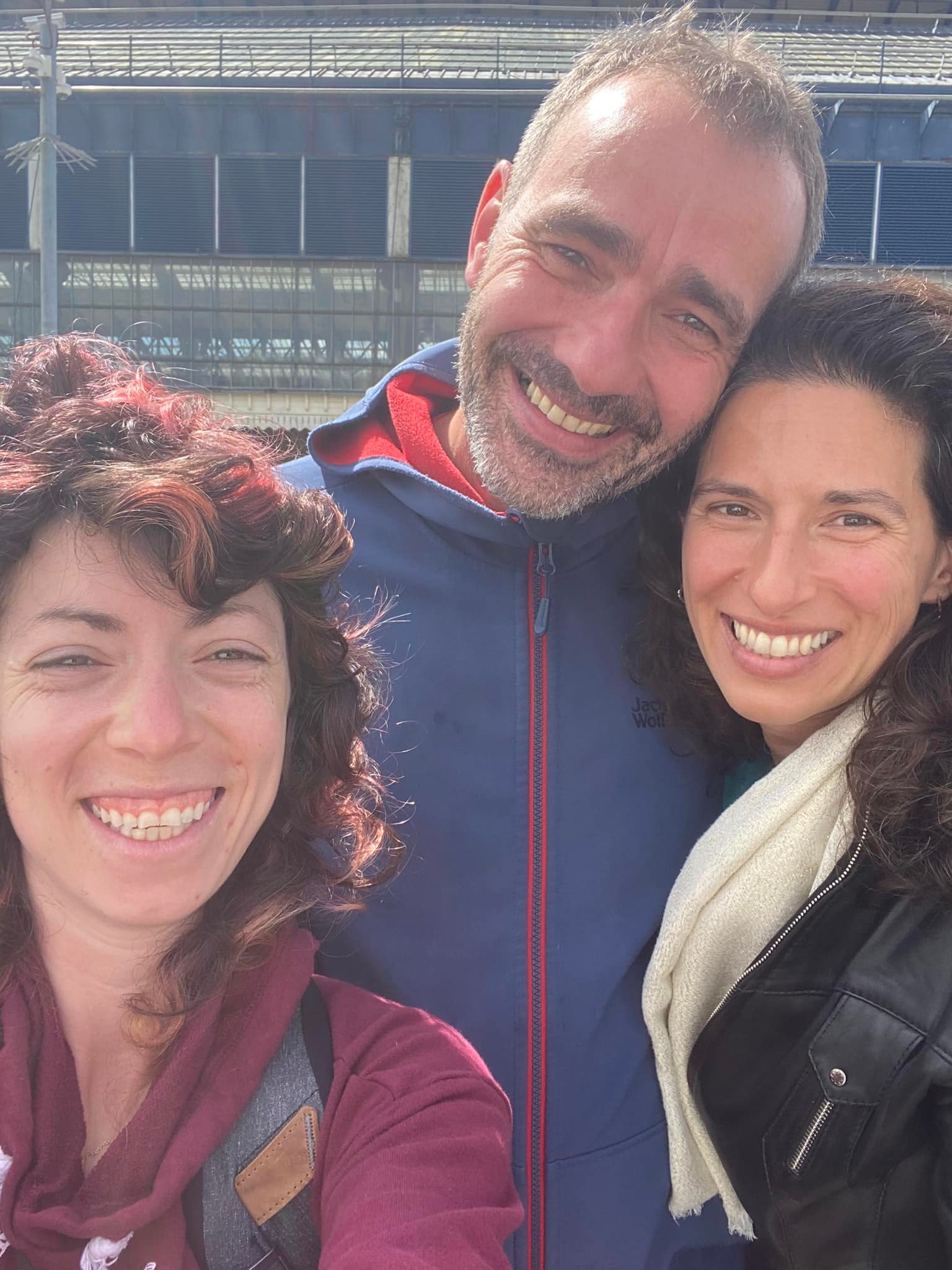
The overwhelming theme of the last few days has been Good People. We have been so, so generously hosted and entertained by students and colleagues whose bodies we’d never seen, but who all turned out to be even cooler than they seemed online. (Yes, Henning, Roxana, Alexander, David, Adam, and Carla, I’m talking about you!)
We’ve been invited to tea on houseboats, schemed to transform the UK government with a civil servant over coffee, took ice baths with the Rebel Wisdom upper crust, closed down a bar with most of the attendees of a Games Night we led (this happened after almost every event!), led our first live Difficult Conversations Lab, led two fantastic Games Nights, took both the Underground and the Overground, butchered British slang, walked by the sea in Brighton, and have barely checked our computers in days.
The rest of our trip is still up in the air, as we wait for word on Geof’s passport. But, I feel so cared about by all those who have lent us their rooms and their time. I feel amused and delighted to have event attendees ask to take pictures with me as though I’m a celebrity. I still feel oddly emotionally muted due to burnout and depression, but I am gradually recovering some of my energy.
Good trip so far!
Day 13.
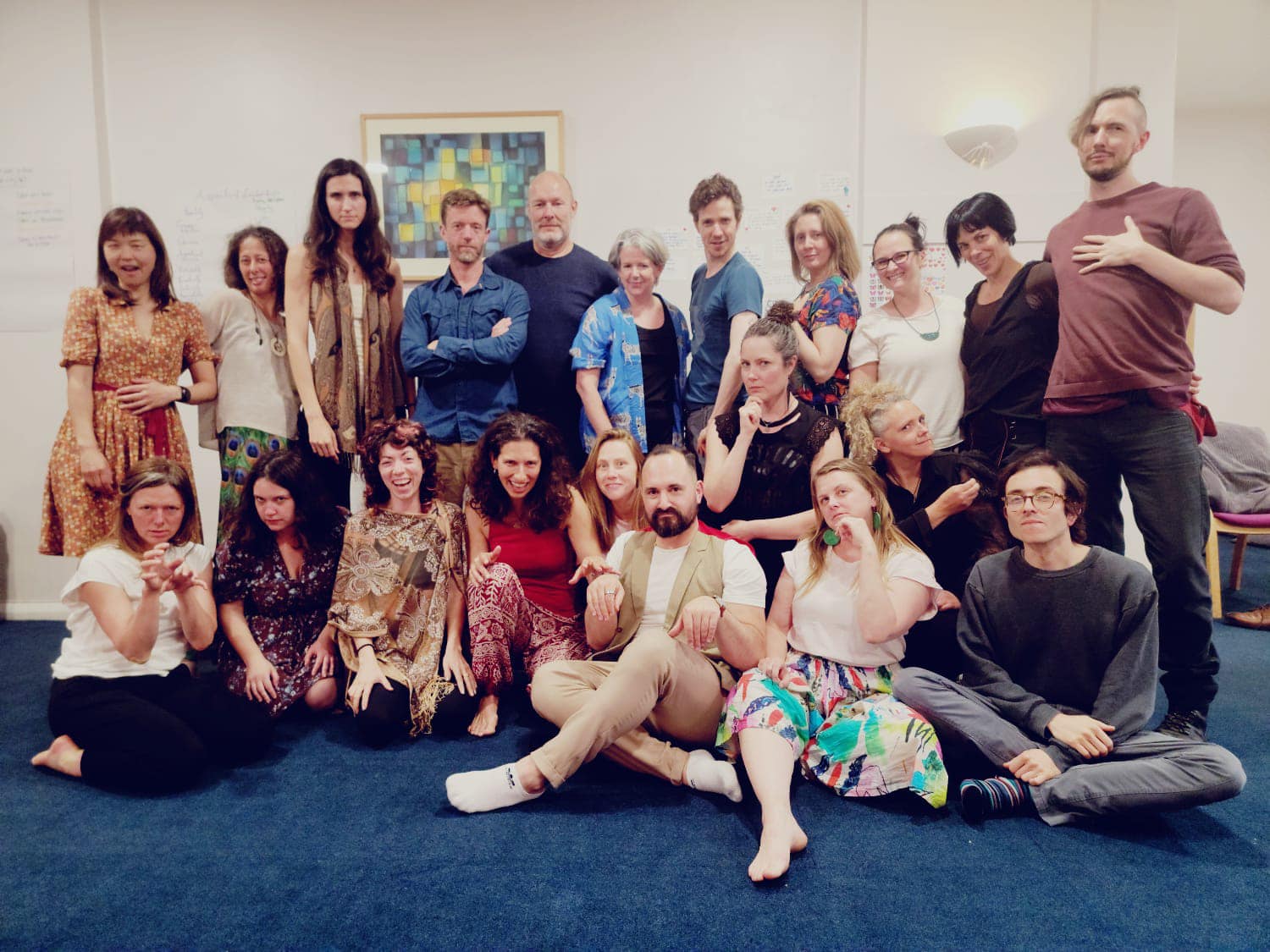
It’s an interesting experience, finding a self I’d forgotten that I forgot…
For the last two years, I’ve been doing things I’m not great at, with people who don’t know me at all. Leading for companies. Leading online. New companies, new groups, new media, new teams. Constantly changing my company and my role, until burnout and confusion and isolation have become more normal than knowing what to do.
Then, I come over here. And despite being on the opposite side of the world, I have a sense of place again. I’m facilitating events I excel at, with audiences that treat me like a celebrity. I’m leading teams I can see and touch, whose skills complement my own. In fact, I’m doing far better work than I did two years ago, because hard practice has made me a better leader, and I am far more effective leading with Geof Krum than I am alone. What we do in person is magic, and I forgot that, because I just can’t do it the same way online.
Still, there is a sense of confusion…who am I, really, now? Am I the celebrated founder-in-part of a field that has spread across the world, and changed countless peoples’ lives? The skilled facilitator who can take groups on a journey to a goal, whatever that may be? The course creator and design coach? The researcher? The second half of a power creative coupleship? The CEO? The nerd holed up alone in my room?
I know that I want to leave the CEO behind, and I know that the role of celebrity has fit awkwardly ever since I fulfilled my need to be seen as so special - now, it is jarring to go from creating behind the scenes to being seen in front. But, as I contemplate leaving one role, the others tug at me, asking which I will expand to fill. My intuition is a quiet voice, chiming in moments of truth and silent when needed the most.
I wait, and listen. And in the meantime, I enjoy the powerful, brilliant facilitator-self I forgot I’d left behind.
June 3rd. Some day of the EuroTour.

Just finished the first evening of a weekend on my pet project, The Relating Languages.
Man is it vulnerable to lead something that feels like just mine, close to my heart, and new. With every word I am scared someone will say, “That’s totally wrong!” - which, as a former straight-A gifted child, would be the worst thing I could hear. It’s so much easier to facilitate and let people have their own experience; so much easier to teach things others have helped to create; to hide behind a structure and a flow, rather than stand for something I believe in the face of criticism.
But it also feels freeing. For many years I’ve felt in a bubble of conscious community, speaking the language of questions and observations, psychological safety and deep listening. Knowing, on some level, that it was isolationist, but not wanting to relate with others who spoke differently. It feels good to stand for the value of perspective-shifting, of helping people learn to challenge and storytell, however awkward and messy it might feel.
I always see how much further there is to go - how much of the type interactions still need to be developed, application strategies, assessments. But it is also good to stand in front of a room full of people and say, “this is something I believe to be valuable and true, and tonight, you will try it with me.” Perhaps I am learning the Challenger language after all 🙂
June 4th. Copenhagen.
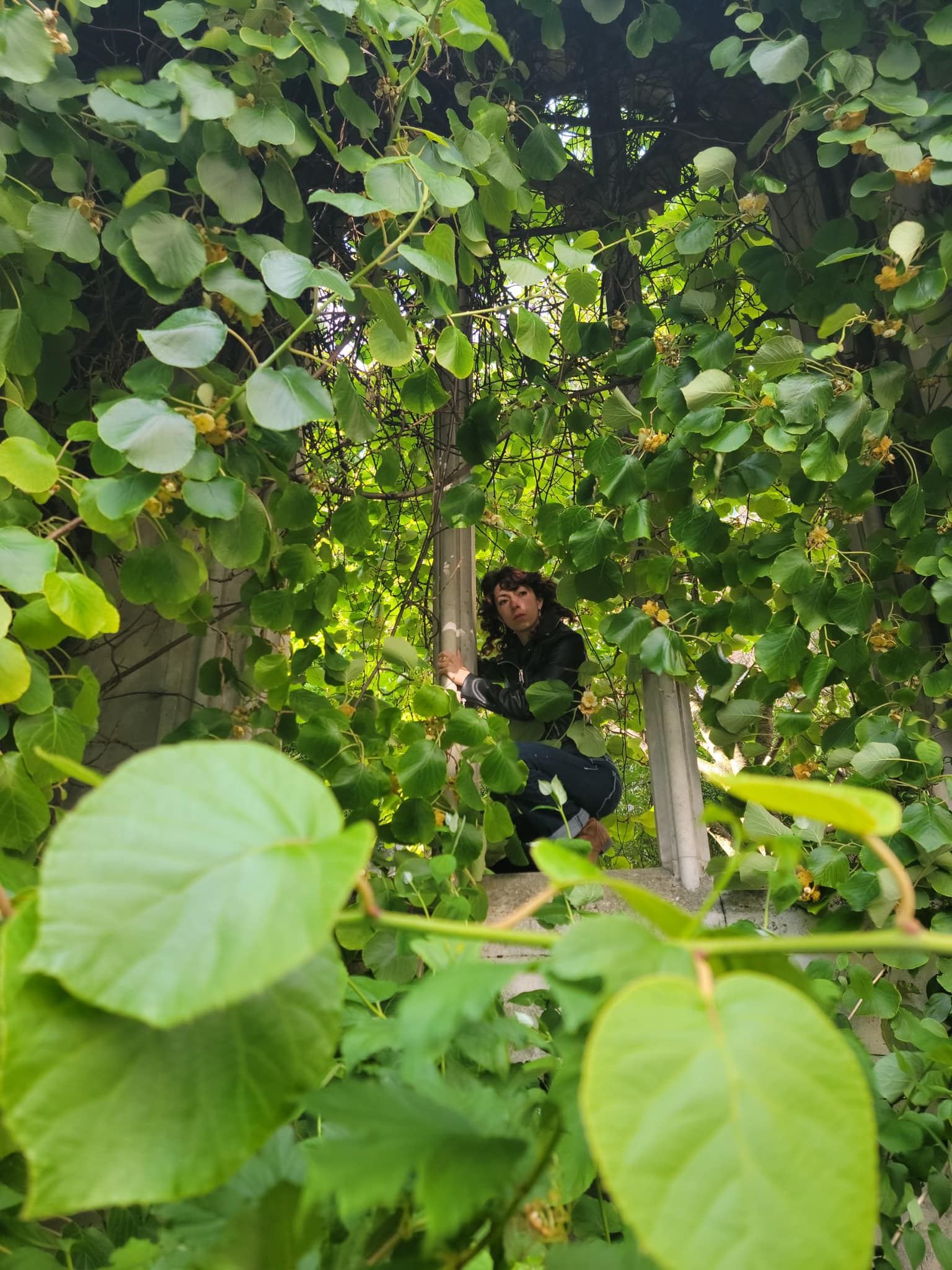
Finishing up a long day of work in Copenhagen…feeling tired and lonely, despite those who love me. Vulnerably hungover from teaching something new, in a culture I cannot yet read, wondering: “is this useful? Am I?”
I drag myself out of the house to a bouldering gym found off Google Maps, knowing the hangover of self-pity is worse yet. Feeling frustrated at the weakness in my arms, climbing sullenly until:
I end up next to an older man, working on the same problem I want to try. One after each other we climb. Then there is the first moment one of us cheers the other; one of us asks the other for help. Then we are friends. Then we orbit each other across the gym, little points of contact, until we are telling each other of our families and he is showing me the best churches to visit in town.
Then I am biking home, and there is a little bar on the corner, bubbling with people outside. On a whim, I turn my bike around. At the counter I ask for the bartender’s favorite ale, and the man next to me gets involved, translating and offering ideas. “It’s on me,” he tells me, and pays for my drink.
A violinist is playing inside as I write this to the sea of connection, all of you, somewhere in your homes or out in the world. The tiny contacts that make life worthwhile. I am met, reminded, reassured. To be human is to be not alone.
June 17. Switzerland.
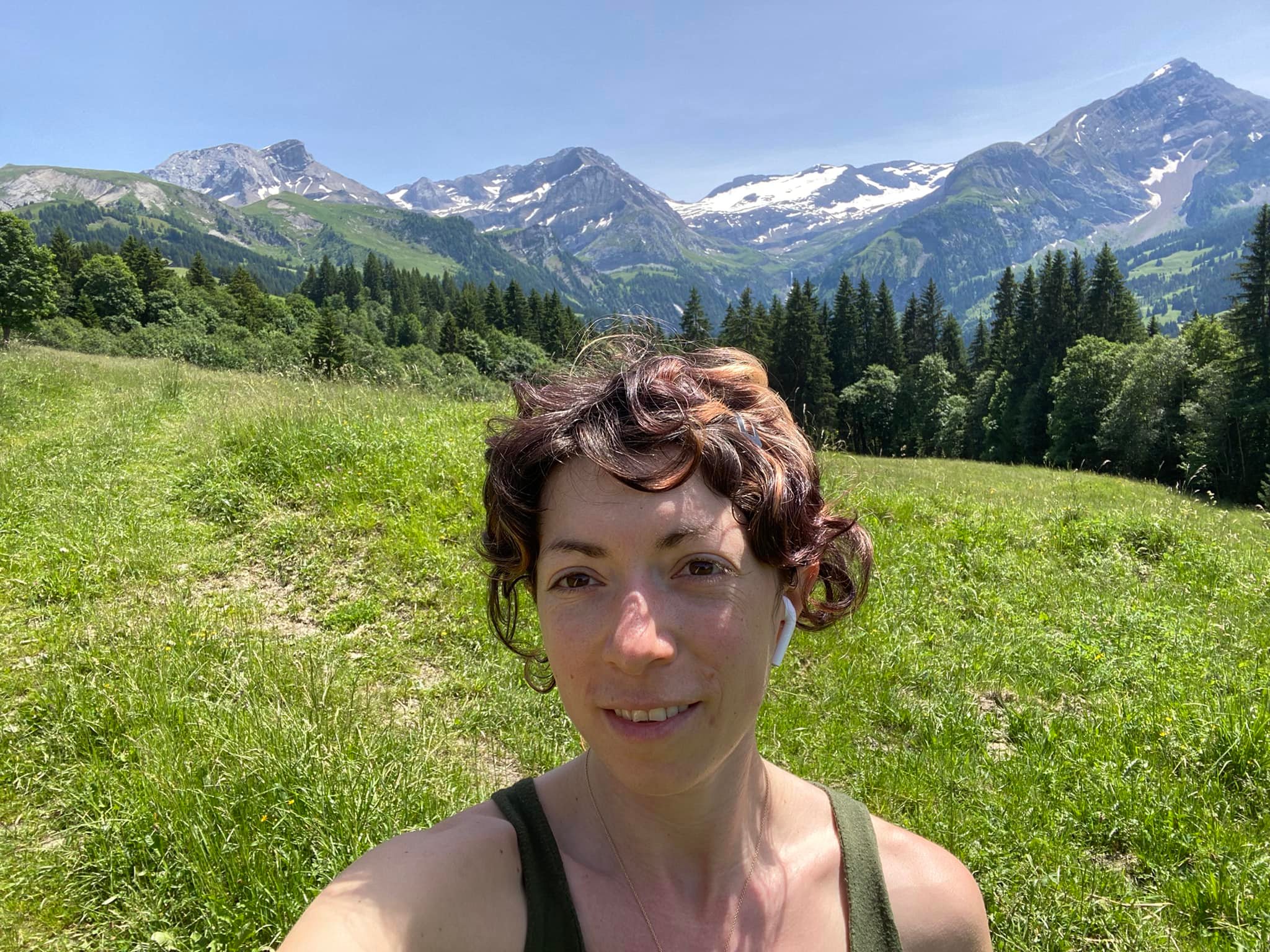
Leading internationally has been a trip.
Despite having worked in groups of many kinds and thinking I was accomplished in navigating cultural differences - company culture is very different than personal development, or nonprofit, or homeless shelter - I had no idea how different it would be to lead in a place where the inherent norms, the ground itself, is altered. I didn’t know how many of my expectations were built on American precepts! It’s been fascinating to see.
For instance: in America, there is a norm of what my colleague Ebony calls “slave culture”. People readily follow leaders. We have a fear of disappointing authority, bred in from controlling teachers and parents, and the fear of an impersonal judicial system. In America, I have to do a lot of context and norm-setting around “it’s okay to speak up for what you want”. And despite that, when people have unmet needs or desires, it more often comes out in group revolt or personal breakdowns than in a clear request.
In Berlin, however, all students receive a mandatory 2-year education in the history of the Holocaust. They KNOW the importance of speaking up against a dictator. Even babies in Berlin scream louder, I noticed; their voices don’t seem to be suppressed in the same way. So in Berlin, we got constant feedback and pushback. If people didn’t want to do an exercise, or didn’t feel adequate context had been set, they just didn’t play. It was an education in where I was unconsciously using power and authority instead of status to get things done. Although, learning that on the job led to a chaotic training.
Other differences: people in Europe, everywhere I’ve gone, don’t smile or exaggerate their facial expressions for the purpose of others’ comfort the way people in the US do. It’s much harder to read a group because I’m not trained in that subtlety. We had to use constant thumb polls - “thumbs up if you’re enjoying this and want to do more, thumbs down if you want to move on” - because we couldn’t tell, from others’ affect, whether or not they liked or hated an exercise.
Time expectations were different. Greeting norms (hugs vs handshakes vs cheek kisses) were different. How close to stand and how much eye contact was normal to make (more direct in Scandanavia, less so in London) was different.
We are now in Switzerland, about to start what might be our hardest training yet - a group of couples where the women asked us here and the men may or may not be enrolled - and I find myself taking deep breaths, knowing that the first day may be a wild ride of getting to know the norms. Of listening deeply not only to what people say, but how they say it, and how they interact; of gauging how they respond to directions versus suggestions versus questions, how they orient to degrees of personal openness; to songs versus speech; to the million tiny nuances that make up a culture, the cultural text i will be racing to understand.
June 20. Switzerland.
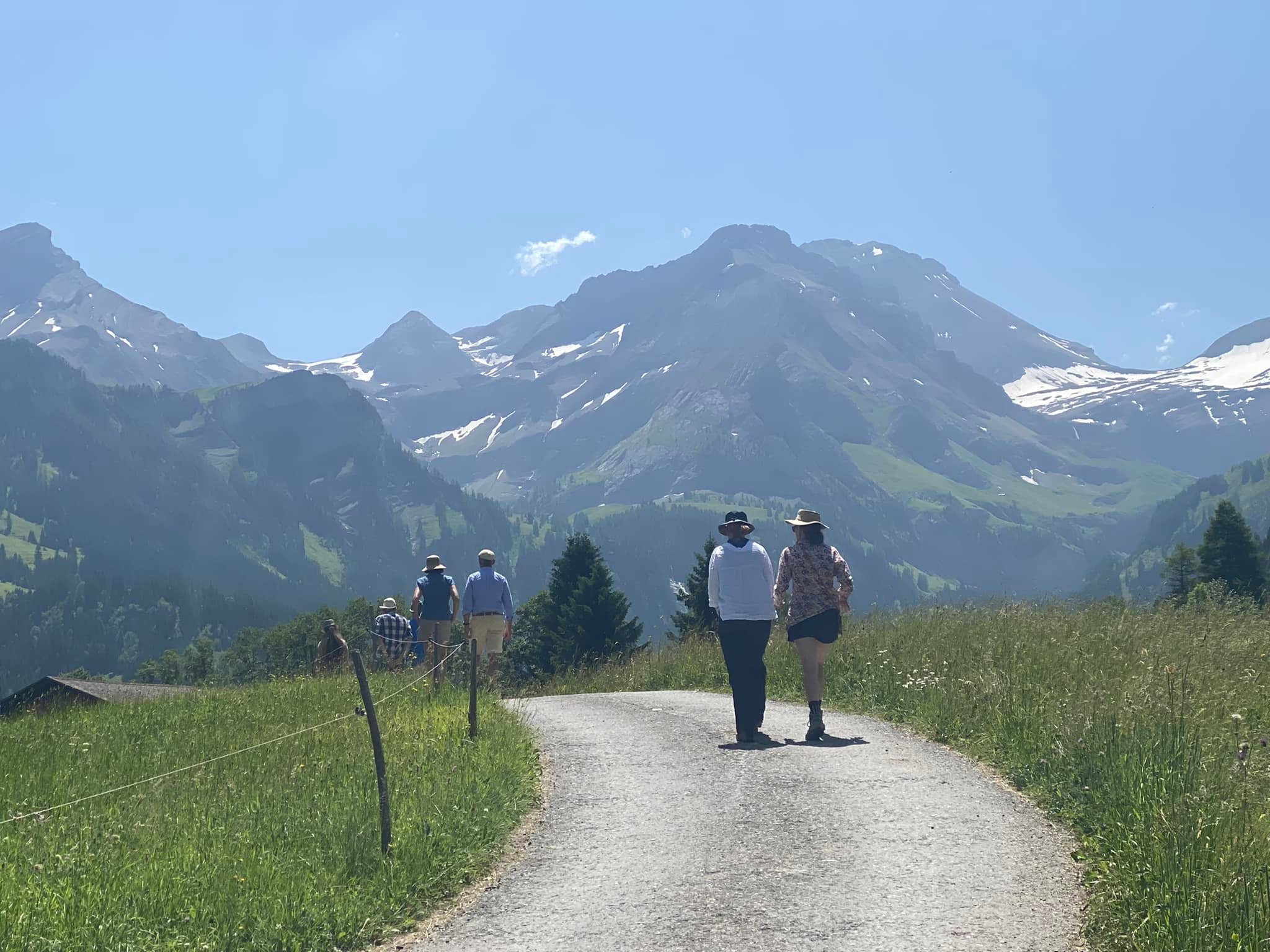
An update about how our Swiss retreat went, for those who asked after my last post on the challenges in Berlin:
These two events were like night and day. I’m still puzzling out why, but fascinated in the difference!
The Berlin group was 20 students of various ages, probably most in their early to mid thirties. Switzerland was 7 couples - 14 people - all in or close to their sixties(ish, i didn’t ask, but gauging from their childrens’ ages). In the first group, most people had done personal growth or communication work; in the second, half (the men) had done none.
Both groups gave us a lot of pushback at first, asking questions and raising objections before they would try any exercise. Both moved more slowly than I usually see in the US, liking a lot of debrief and breaks.
But…while the Berlin group never quite gelled and never quite trusted us, the Swiss group was a smash hit.
Here’s why I think it happened:
1. In the Swiss group, we had a woman on the inside advocating for us, who the group already trusted and wanted to support. Also, we were in a beautiful home that increased the sense of comfort, especially since everyone was sleeping over there together. And the scenery is gorgeous, of course.
2. Because of what happened in Berlin, we were much more careful in Switzerland to ask about cultural norms (ex. do people hug, handshake, or kiss cheeks to say hello?), avoid jargon, and give the group hand signals to slow us down if we spoke too fast.
3. In Switzerland, we made more time for questions and debriefs instead of following a schedule. We also took more breaks and connected with participants 1:1.
4. In Berlin, most participants were interacting with strangers. In Switzerland they were playing with their spouses and friends of 20-30 years, which is much higher stakes. This made gaining trust harder, but also made the participants more invested when they did try things out, and made the exercises more impactful. It’s always a delight when you’ve known your partner for decades, and all of a sudden learn something you never knew about them by playing a game.
5. In Switzerland we did shorter sessions with more movement in between. Despite the fact that we taught a lot of content, people didn’t get as tired or overwhelmed.
At the end of the weekend in Switzerland, I could tell that the group had an experience that might radically change the way they interact with their spouses, friends, and even children. We taught them how to listen, reflect, modulate emotional intensity, share their motivations, translate others’ words, share withholds, and use the Relating Languages for deeper connection and acceptance. At the end, they supported each other to roleplay difficult conversations in their lives. (All this in only 12 hours of actual teaching/facilitation time, which I have to give us some back pats for!)
I felt redeemed from the difficult weekend in Berlin, and deeply nourished by the intellect and kindness of the Swiss group, as well as by the beautiful setting. I had a blast leading with Geof, and feel really excited to have a new retreat format, created on the fly from what this group needed, that brings together our most powerful communication models of the last year (Relating Languages and Difficult Conversations).
On to a few days in London, and then HOME!! But don’t worry, Europe…it looks like we’ll probably be back next year, since everyone we led for or with this time wants more 😝
Lorem ipsum dolor sit amet, consectetur adipiscing elit. Cras sed sapien quam. Sed dapibus est id enim facilisis, at posuere turpis adipiscing. Quisque sit amet dui dui.
Stay connected with news and updates!
Join our mailing list to receive the latest news and updates from our team.
Don't worry, your information will not be shared.
We hate SPAM. We will never sell your information, for any reason.


